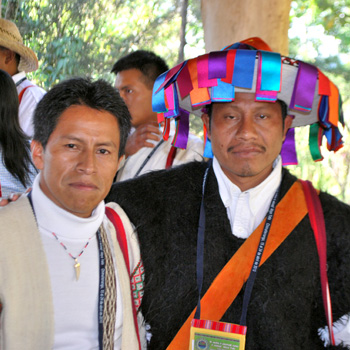
In some countries of Latin America we have been discussing interculturalism for over 25 years. The result of this long and often unproductive process is that some countries have included the terms multicultural, multiethnic and even multinational in their new constitutions. Other countries began the debate later, while others are still not talking about the issue or simply ignore it. This gives the impression of a world with profound differences, and this of course is true. In this immense territory with its cultural, social and political differences, the roads to travel are difficult, if not impossible, at least for now.
At the IPHU in Chimaltenango, the participants discussed this issue in work groups, agreeing and disagreeing, leading us to understand that many of the terms that have been discussed in recent years have arisen from the thinking of intellectuals and academics interested more in epistemological categories than in understanding the concrete needs of the people involved. Therefore, until the people themselves decide what direction they want to take, the debate will continue to be drawn out as well as removed from the reality it seeks to change.
This means that the recognition and affirmation of the identities within the cultural unity of native and Afro-descendent peoples is the only guarantee that a true discussion of traditional knowledge will establish a bridge to the authentic practice of interculturalism, which will always remain outside of the purview of the laws and expediency of national governments.
Alongside these thoughts, we also need to think about the relationship and contradictions between society and its natural environment, given that culture is nothing other than the result of that ever-shifting dynamic, within which the interrelationship among human groups becomes meaningful, whether through their familial relationships or differences, but always in the quest for knowing how to share and exist with the unique elements in each human community.
Meanwhile, to the extent that nature is continuing to deteriorate and ethnic groups’ lands are being encroached upon, it is becoming more urgent to reach agreements, especially on the defence of the places where people live, which in the end are the basis of social reproduction and the survival of the planet, without which, good intentions, no matter where they come from, would be worthless.
Chimaltenango, 15 April 2010
Jaime Idrovo Uriguen
EQUIPO COMUNICÁNDONOS

